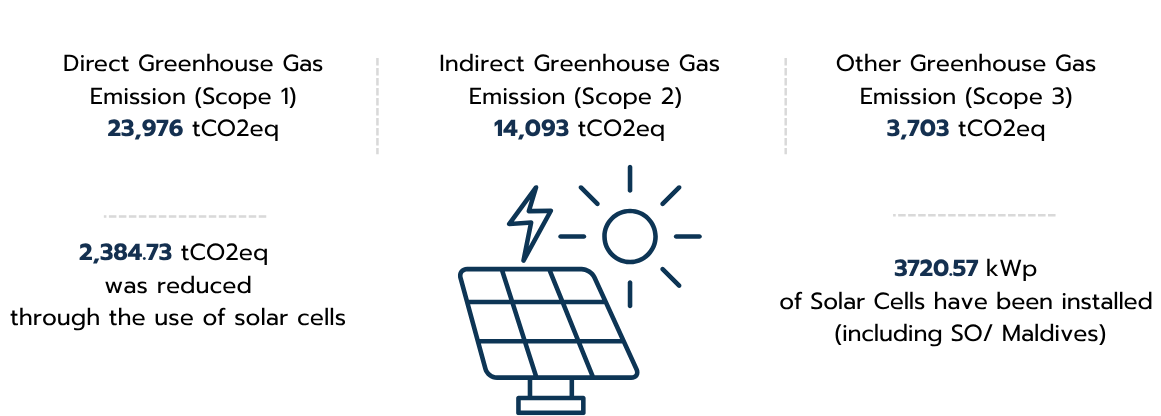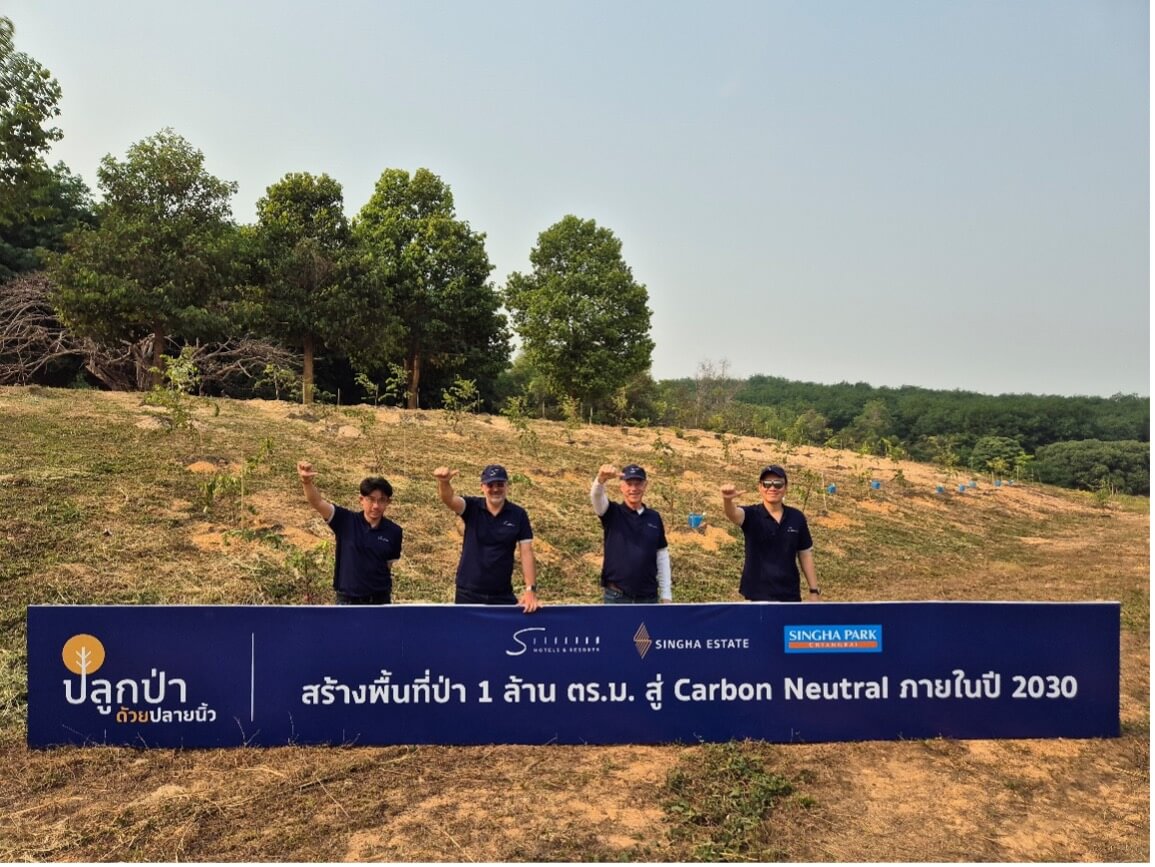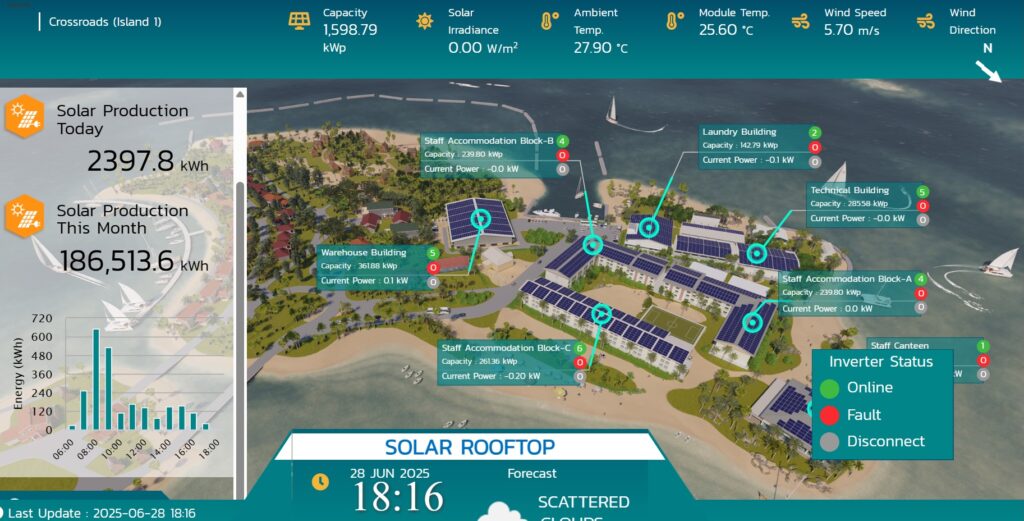SHR recognizes the challenges posed by climate change that may impact the tourism industry in the long term. Therefore, we are committed to managing energy, water, and waste resources efficiently, reducing greenhouse gas emissions, and enhancing business sustainability through clear targets and key performance indicators (KPIs) to measure progress. We also strive to adapt promptly to changes, building confidence and meeting the expectations of travelers who prioritize sustainable tourism and contribute to Thailand’s sustainability measures.
Targets
- Reduce greenhouse gas emissions by 5% compared to the baseline year
- Achieve carbon neutrality by 2030 (Carbon Neutral 2030)
Performance

Business Opportunities and Risks
Sustainable business operations create opportunities to advance toward sustainable tourism, attracting environmentally conscious tourists and partners. They also increase access to funding sources that support ESG initiatives, particularly those aligned with the BCG Model and a low-carbon economy.
Conversely, the Company faces risks from the impacts of climate change, such as natural disasters, coastal erosion, and carbon taxes. These risks could affect revenue, brand reputation, and operational costs if effective adaptation measures are not implemented.
Long-Term Carbon Action Plan
2018
- Carbon Kick-off Plan: Develop the organization’s carbon management plan (Singha Estate Kick-off Plan).
2019
- 1st Carbon Neutral Hotel: Conduct carbon assessment and achieve carbon neutrality at Santiburi Koh Samui, the first hotel.
2020
- Offset Carbon for SAii Phi Phi Island Village: Expand carbon assessment and offset coverage to include SAii Phi Phi Island Village hotel.
2021
- Achieve 100% Carbon Assessment Coverage: Extend carbon assessment to cover the headquarters and all SHR operations.
2022
- Increase Environmentally Friendly Energy Mix: Expand carbon assessment coverage and increase the proportion of environmentally friendly energy use while reducing carbon emissions through green technologies.
2023
- Set a target to become a Carbon Neutral Organization by 2030 (Carbon Neutrality 2030).
- Study Decarbonization Pathway options to reduce the organization’s greenhouse gas emissions.
- Install Smart Energy Technologies in hotel rooms, such as door and window sensors to save energy. For example, the system will turn off the air conditioning if doors or windows are left open.
2024
- Install smart technologies like door and window sensors in over 730 hotel rooms in Thailand and the Maldives to conserve energy.
- Replace air conditioners with new models using environmentally friendly refrigerants.
2025
- Achieve 10% Carbon Reduction Target: Reach a 10% reduction in carbon emissions.
2030
- Achieve 20% Carbon Reduction and Carbon Neutrality: Reach a 20% reduction in carbon emissions as per the Paris Agreement and become a Carbon Neutral Organization.
Reforestation Project
The Company has joined the " Plook Pa Duay Plai New" reforestation project sponsored by Singha Estate Public Company Limited, aiming to create 1 million square meters of forest area at Singha Park in Chiang Rai province. This area is a crucial watershed forest in the northern provinces, significant for the ecosystem and climate, as it hosts a diversity of plant and wildlife species.

Improvements and innovations in energy

Modification project of electric golf carts, switching from lead-acid batteries to lithium batteries.
Engineers team from Santiburi Resort on Koh Samui has implemented a project to modify electric golf carts by modifying and replacing the old lead-acid batteries with lithium batteries (Golf Cart Lithium Battery). This helps the resort save on battery replacement costs and ensures a consistent power supply. The Santiburi Resort has modified a total of 5 golf carts. Additionally, this project promotes job creation in the local community on Koh Samui, with local labor being hired for the modifications and materials being purchased locally.
Benefits of switching to lithium batteries
- Lighter weight: Lithium-ion batteries weigh approximately 600 grams, lighter than lead-acid batteries.
- Reduced lead contamination: Lithium-ion batteries do not contain lead, reducing soil and water pollution.
- Reduced waste: Lithium batteries have a longer lifespan, reducing the number of batteries disposed of and increasing recyclability.
- Reduced greenhouse gas emissions: Charging lithium batteries requires less energy and is more efficient.
- Battery replacement cost: While lithium batteries may initially have a higher cost, their longer lifespan results in less frequent replacements, making them more cost-effective in the long run.
- Maintenance cost: Maintenance costs are reduced as lithium batteries require less maintenance than lead-acid batteries.
- Performance: Faster charging and longer charging distances reduce downtime for battery charging.
Over a five-year period, using lithium batteries instead of lead-acid batteries can save the resort approximately 63,000 baht and reduce environmental impact due to the longer lifespan and lower charge discharge rates of lithium batteries.
Clean Energy Project

S.IF Company, a trading partner and subsidiary of Sing Estate, collaborated with the in-house engineering team to drive and implement a clean energy project. This project involved installing solar panels in several hotel locations, including Santiburi Koh Samui, SAii Laguna Phuket, SAii Phi Phi Island Village, and CROSSROADS Maldives.
This clean energy project helps hotels save energy by at least 4% and reduce greenhouse gas emissions. Furthermore, it promotes the transition from using fossil fuels to clean energy technologies. The company plans to increase the proportion of clean energy in the future to enhance sustainability and energy security in its operations.
Learn more in the Sustainability Report under the section Greenhouse Gases and Climate Change
